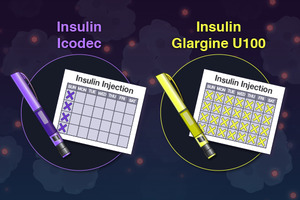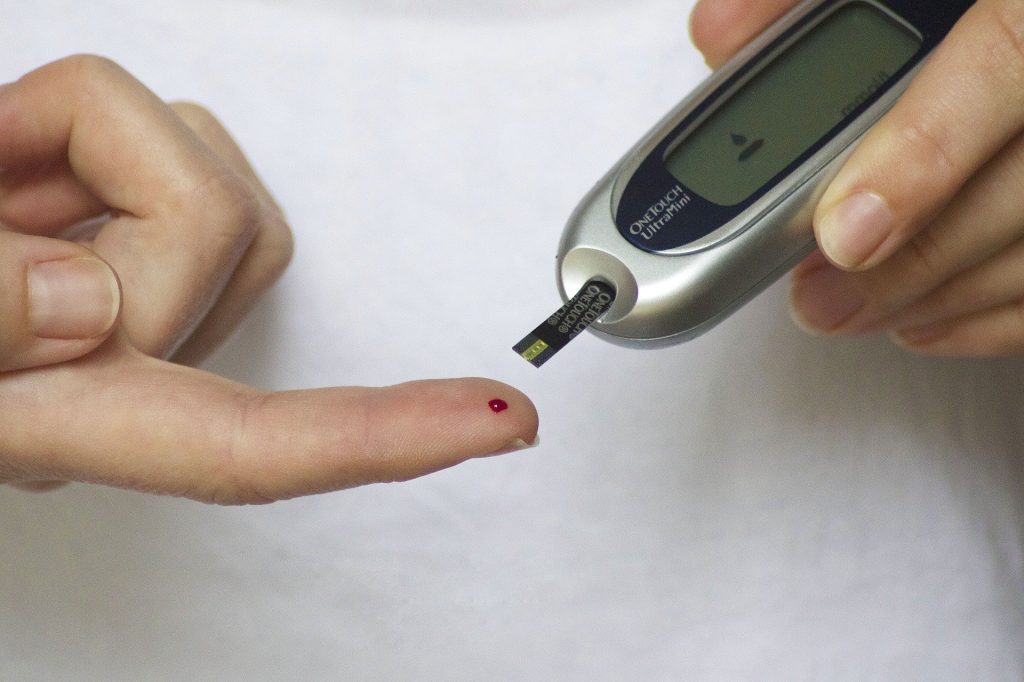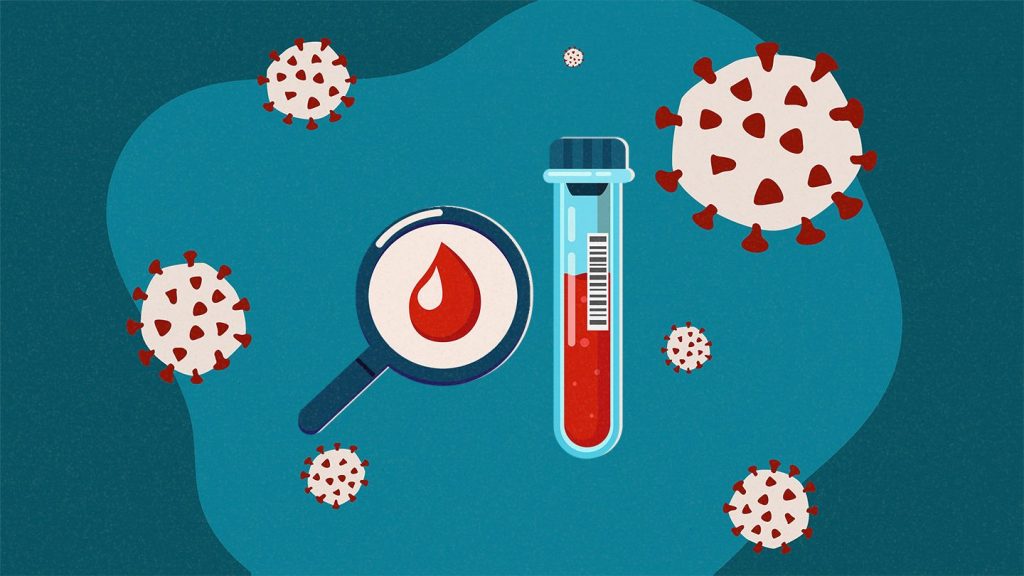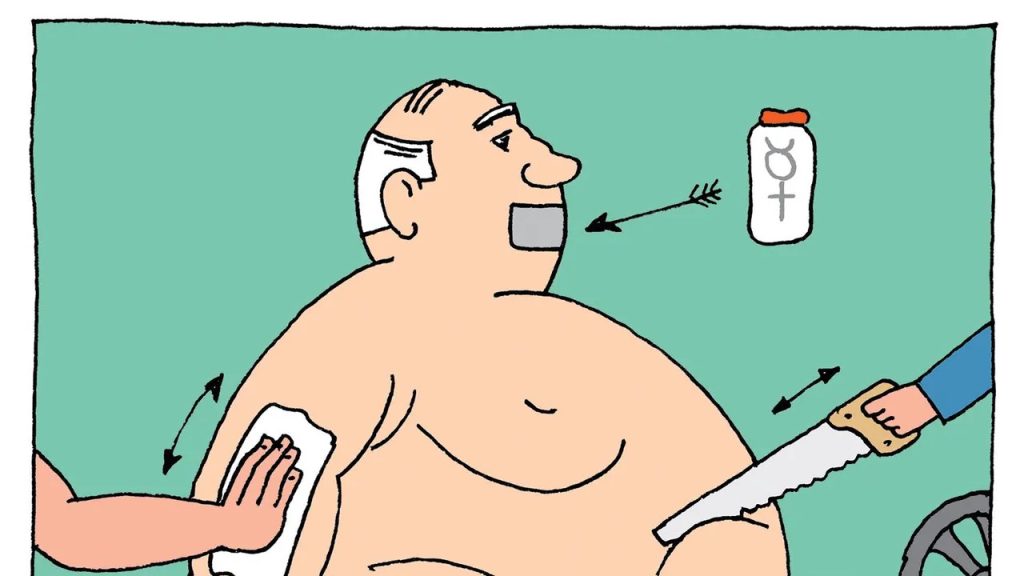Higher doses of Ozempic improve blood sugar, weight loss?
According to experts, glucagon-like peptide 1 (GLP-1) medications like Ozempic, often referred to as semaglutide, can aid in weight loss in those who are obese.
For weight loss, Ozempic is not FDA-approved. There is also the brand Wegovy, which is semaglutide.
Wegovy and Ozempic should not be used by persons who are not diabetic or obese for any reason, including to shed minor amounts of weight, according to experts.
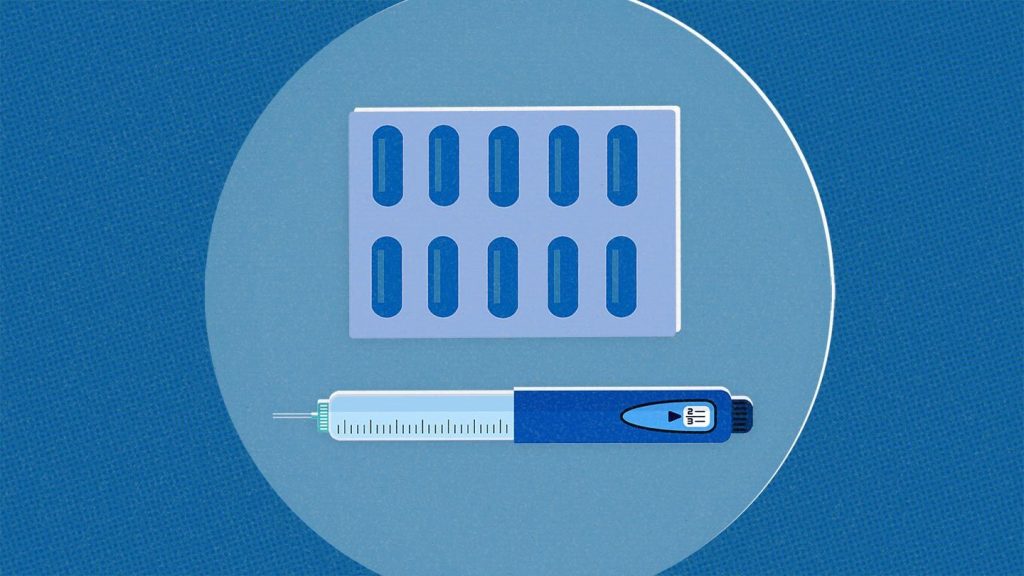
In the latter part of 2017, the FDA approved the use of the GLP-1 medication Ozempic in people with type 2 diabetes. But lately, it’s made news for other reasons as well: Benefits of purported weight loss and scarcity.
“People are talking about them because there is a trend where celebrities and influencers are increasingly turning to off-label use of GLP-1 medications like Ozempic for weight loss by people who are not obese or diabetic,” claims Dr. Rekha Kumar, an endocrinologist in New York City and the head of medical affairs at the weight management program Found.
This, according to Kumar, is very troubling.
“The trend of medispas, boutique weight-loss clinics, and illegal telehealth businesses liberally prescribing to people who don’t meet criteria is not only irresponsible prescribing, but it may also prevent the medication from reaching those who need it most,” Kumar claims.
By responding to the following frequently asked questions regarding Ozempic, Kumar and other professionals distinguished fact from fantasy.
What is Ozempic?
Dr. Angela Fitch, FACP, FOMA, president of the Obesity Medicine Association and chief medical officer of knownwell, a weight-inclusive healthcare firm, says that Ozempic is a brand name for the medication recognised as semaglutide.
Ozempic is an injectable medicine for persons with type 2 diabetes, according to Kumar. The FDA first approved it for 0.5 mg or 1 mg dosages. The FDA authorized a higher dose of 2 mg in 2022.
According to Kumar, it helps the pancreas produce insulin, which decreases blood sugar levels.
Adverse effects of semaglutide
All GLP-1 medications, as pharmacological agents, have the potential to have side effects, according to Dr. Jay Shubrook, professor of the Primary Care Department at Touro University in California.
According to Dr. Shubrook, these “are frequently dose-dependent and can be more obvious during dose changes.”
In any case, typical adverse effects of semaglutide “include an excessive loss of appetite, nausea, and less frequently, vomiting or diarrhoea. Most patients only experience temporary adverse effects, he noted.
He pointed out that teaching patients to eat slowly and mindfully, as well as how to control their portions, can lessen the negative effects of semaglutide.
Is Ozempic an FDA-approved weight-loss product?
No. “Ozempic is only approved for diabetes,” claims Dr. Charlie Seltzer, a Philadelphia-based medical professional who is board-certified in both internal medicine and obesity.
But here’s where some of the ambiguity arises. “The active ingredient, semaglutide, is approved for weight loss under the trade name Wegovy,” claims Seltzer.
Elon Musk tweeted about Wegovy’s assistance with his weight loss in October 2022.
Distinction between Wegovy and Olympic
Semaglutide and injectables are both sold under the trade names Ozempic and Wegovy. They aren’t precisely the same, though.
“Wegovy is FDA-approved for the treatment of overweight and obesity,” claims Kumar. “Wegovy was developed specifically for the treatment of overweight and obesity,” according to the manufacturer. “It contains a higher dose of semaglutide, [2.4 mg], than Ozempic.”
Does Ozempic aid in shedding pounds?
Kumar points out that Wegovy’s dosing was employed in the studies on semaglutide and weight loss, including one from 2021 that showed that once-weekly doses of 2.4 mg of semaglutide could lower body weight when paired with dietary and lifestyle modifications.
“[In the] study,] those who took the medication and made lifestyle changes lost almost 15% of their body weight, on average, compared to 3% in the placebo group,” Kumar claims.
So certainly, semaglutide may aid in weight loss, at least at a greater dose of 2.4 mg. Although Seltzer observes that the two medications function similarly, it is uncertain whether the 0.4 mg dosage difference between Ozempic and Wegovy is significant.
As food takes longer to leave the stomach and suppresses hunger, ozempic prolongs satiety, according to Seltzer. “It does nothing magical to the metabolism.”
In addition, Kumar points out that despite what some celebrities and social media influencers may say, these medications are not intended for those who just want to drop a few pounds.
“Normal-weight patients without diabetes might lose weight if they take GLP-1s, but the risks of the medication outweigh the benefit of weight loss just to be thin versus treating a disease,” says Kumar. “GLP-1s have not been studied in this population, and with this type of inappropriate use, we probably will see more side effects.”
Is Ozempic safe?
For adults with type 2 diabetes, ozempic is typically regarded as safe in doses up to 2 mg, however doctors agree that some people shouldn’t take it.
“It should be avoided in many populations, including but not limited to people with a history of pancreatitis, people who have had medullary thyroid cancer, or who are at increased risk for medullary thyroid cancer,” says Seltzer.
If you are a good candidate for Ozempic, your doctor can help you decide. Furthermore, some persons might suffer negative effects. According to Fitch, typical ones include:
- nausea
- constipation
- dizziness
- reduction in appetite
- diarrhea
Can you regain weight after using semaglutide?
Patients who quit taking 2.4 mg dosages of semaglutide had gained back two-thirds of the weight they had lost one year after stopping, according to a trial of nearly 2,000 patients published in 2022.
The same problems that got the people into difficulty in the first place will still exist once the drug is stopped or loses its effectiveness, according to Seltzer, and the weight will quickly regain.
Fitch concurs,
Whatever you do personally to aid in weight loss, Fitch advises, “You have to keep doing it, or the weight will come back.” “The human body was created in this manner. It is constructed to safeguard its weight at all costs. Care for the elderly is crucial.
“Since obesity is a chronic disease, you must treat it chronically, ongoingly, and in a coordinated, comprehensive way,” adds Fitch. For a comprehensive approach to metabolic health, weight control, and primary care, patients must collaborate with their doctor.
What other therapies are there for obesity?
First, Fitch emphasises the need of being nonjudgmental and emphasising joint decision-making in all obesity treatments.
According to Fitch, “obesity is a lifelong chronic disease and should be treated in a compassionate and thorough patient-centered way, such as shared decision making around taking medication or having surgery with the risks and benefits in mind.”
Although diet and exercise are frequently suggested as first-line therapy, they are not always effective.
“Obesity is a complex disease with many factors,” explains Fitch. “We add in other treatments to help patients live longer, healthier, better quality lives when lifestyle changes are not enough.”
REFERENCES:
- https://www.medicalnewstoday.com/articles/ozempic-in-pill-could-higher-doses-improve-blood-sugar-weight-loss
- https://www.healthline.com/health-news/ozempic-for-weight-loss-experts-answer-common-questions
- https://www.forbes.com/health/body/ozempic-for-weight-loss/
For Weight loss medications that have been suggested by doctors worldwide are available here https://mygenericpharmacy.com/index.php?therapy=20
